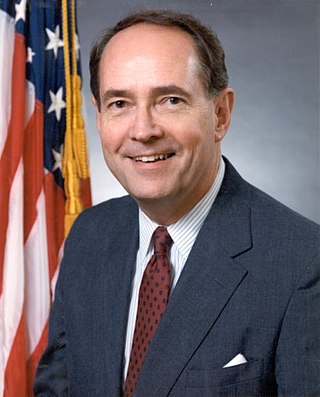
Richard Lewis Thornburgh was an American lawyer, author, and politician who served as the 76th United States attorney general from 1988 to 1991 under presidents Ronald Reagan and George H. W. Bush. A Republican, he previously served as the 41st governor of Pennsylvania and as the U.S. attorney for the Western District of Pennsylvania.

Robert Patrick Casey Sr. was an American lawyer and politician from Pennsylvania who served as the 42nd governor of Pennsylvania from 1987 to 1995. He served as a member of the Pennsylvania Senate for the 22nd district from 1963 to 1968 and as Auditor General of Pennsylvania from 1969 to 1977.
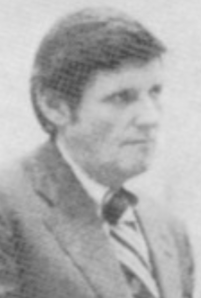
Peter Francis Flaherty was an American politician and attorney. He served as assistant district attorney of Allegheny County from 1957 to 1964, a member of the Pittsburgh City Council from 1966 to 1970, the 54th mayor of Pittsburgh from 1970 to 1977, United States deputy attorney general during the Carter administration from 1977 to 1978, and county commissioner of Allegheny County from 1984 to 1996.

Catherine Baker Knoll was an American politician and member of the Democratic Party. She was the 30th lieutenant governor of Pennsylvania, serving under Governor Ed Rendell from 2003 to 2008, when she died in office. Prior to that, she served as the 72nd Pennsylvania State Treasurer from 1989 to 1997. She was the first and so far only woman to be Lieutenant Governor of Pennsylvania.
Barbara Hafer is an American politician and convicted felon from the Commonwealth of Pennsylvania. She served as a member of the Allegheny County Board of Commissioners from 1984 to 1989, as the Auditor General of Pennsylvania from 1989 to 1997 and as the Treasurer of Pennsylvania from 1997 to 2005.
The Pennsylvania Republican Party (PAGOP) is the affiliate of the Republican Party in the state of Pennsylvania. It is headquartered in Harrisburg.
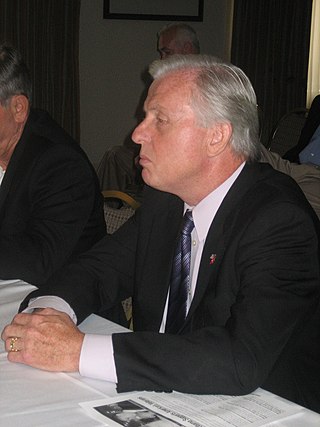
Jack E. Wagner is an American Democratic politician from the Commonwealth of Pennsylvania. He served as Pennsylvania Auditor General, and previously served in the State Senate and Pittsburgh City Council.

The 1991 United States Senate special election in Pennsylvania was held on November 5, 1991, after incumbent Republican Senator John Heinz died in a plane crash on April 4 of that year. Democrat Harris Wofford was appointed to the seat by Governor Bob Casey, and won the general election over Republican Dick Thornburgh, a former Governor and U.S. Attorney General. Wofford became Pennsylvania's first Democratic Senator since Joseph S. Clark Jr. left office in 1969. Major-party candidates for this election were chosen by party committees, as the vacancy had happened too late for a primary to be held.

The 2002 Pennsylvania gubernatorial election was held on November 5, 2002, to elect the Governor and Lieutenant Governor of Pennsylvania. Incumbent Republican governor Mark Schweiker, who took office in 2001 when Tom Ridge resigned to become Homeland Security Advisor, was eligible to run for a full term, but did not do so. Democrat Ed Rendell, the former mayor of Philadelphia and Chairman of the Democratic National Committee, emerged from a competitive primary to win the general election against Republican Pennsylvania Attorney General Mike Fisher.

The 1994 Pennsylvania gubernatorial election was held on November 8, 1994. The incumbent governor, Bob Casey, Sr. (Democrat), was barred from seeking a third term by the state constitution. The Republican Party nominated Congressman Tom Ridge, while the Democrats nominated Mark Singel, Casey's lieutenant governor. Ridge went on to win the race with 45% of the vote. Singel finished with 39%, and Constitution Party candidate Peg Luksik finished third, garnering 12% of the vote.

The 1990 Pennsylvania gubernatorial election was held on November 6, 1990. Incumbent Democratic governor Robert P. Casey easily defeated Republican Barbara Hafer. Governor Casey defeated Hafer by a margin of 35.29%, and carried 66 out of 67 Pennsylvania counties.
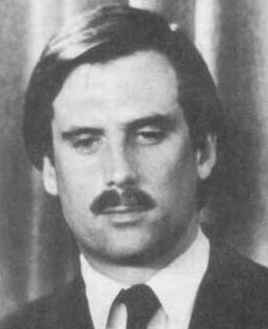
The 1986 Pennsylvania gubernatorial election was held on November 4, 1986. Democrat Bob Casey narrowly defeated Republican Bill Scranton III, in a race that featured two very high-profile candidates. The race was a rematch of the lieutenant gubernatorial nominees in 1978, a race where Scranton defeated Casey. As of 2022, this is the most recent Pennsylvania gubernatorial race to have a margin within five points for either party.

The 1974 Pennsylvania gubernatorial election was held on November 5. Incumbent Democratic Governor Milton Shapp defeated Republican Drew Lewis. Under the state's 1968 constitution, Shapp was the first governor who was eligible to run for consecutive terms.

The 1970 Pennsylvania gubernatorial election was held on November 3. Democrat Milton Shapp challenged incumbent Republican Lieutenant Governor Ray Broderick.

The 1980 United States Senate election in Pennsylvania was held on November 4, 1980. Incumbent Republican U.S. Senator Richard Schweiker decided to retire, instead of seeking a third term.

The 1966 Pennsylvania gubernatorial election was held on November 8. Republican Ray Shafer, the state's incumbent Lieutenant Governor, was elected to the state's highest office after holding off a charge from future governor Milton Shapp.
Governor Milton Shapp of Pennsylvania unsuccessfully sought the Democratic Party nomination for president of the United States in the 1976 election. Shapp won reelection as governor of Pennsylvania in the 1974 election, the first Pennsylvania governor to be elected to a second four-year term following an amendment permitting this in 1967, and had hoped to translate his relative popularity in Pennsylvania into the groundwork of a successful presidential campaign.

The Pennsylvania Attorney General election of 2016 took place on November 8, 2016, to elect a new Pennsylvania Attorney General. Democratic incumbent Kathleen Kane originally indicated her intention to seek re-election, but dropped out after she was criminally charged with violating grand jury secrecy laws stemming from alleged leaks of grand jury investigation details to embarrass a political enemy.

The 2018 Pennsylvania gubernatorial election took place on November 6, 2018, to elect the Governor and Lieutenant Governor of Pennsylvania, concurrently with the election of Pennsylvania's Class I U.S. Senate seat, as well as elections to the United States House of Representatives and various local elections. Incumbent Governor Tom Wolf won re-election to a second term by a double-digit margin, defeating Republican challenger Scott Wagner and two third-party candidates from the Green Party, Paul Glover and Libertarian Party, Ken Krawchuk. The primary elections were held on May 15. This was the only Democratic-held governorship up for election in 2018 in a state Donald Trump won in the 2016 presidential election.
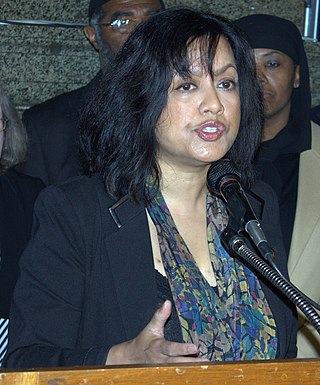
The Pennsylvania Auditor General election of 2020 took place on November 3, 2020. Primary elections were originally due to take place on April 28, 2020. However, following concerns regarding the coronavirus pandemic the primaries were delayed until June 2, 2020. Under the Pennsylvania Constitution incumbent Democratic Auditor General Eugene DePasquale was ineligible to seek a third consecutive term.




















